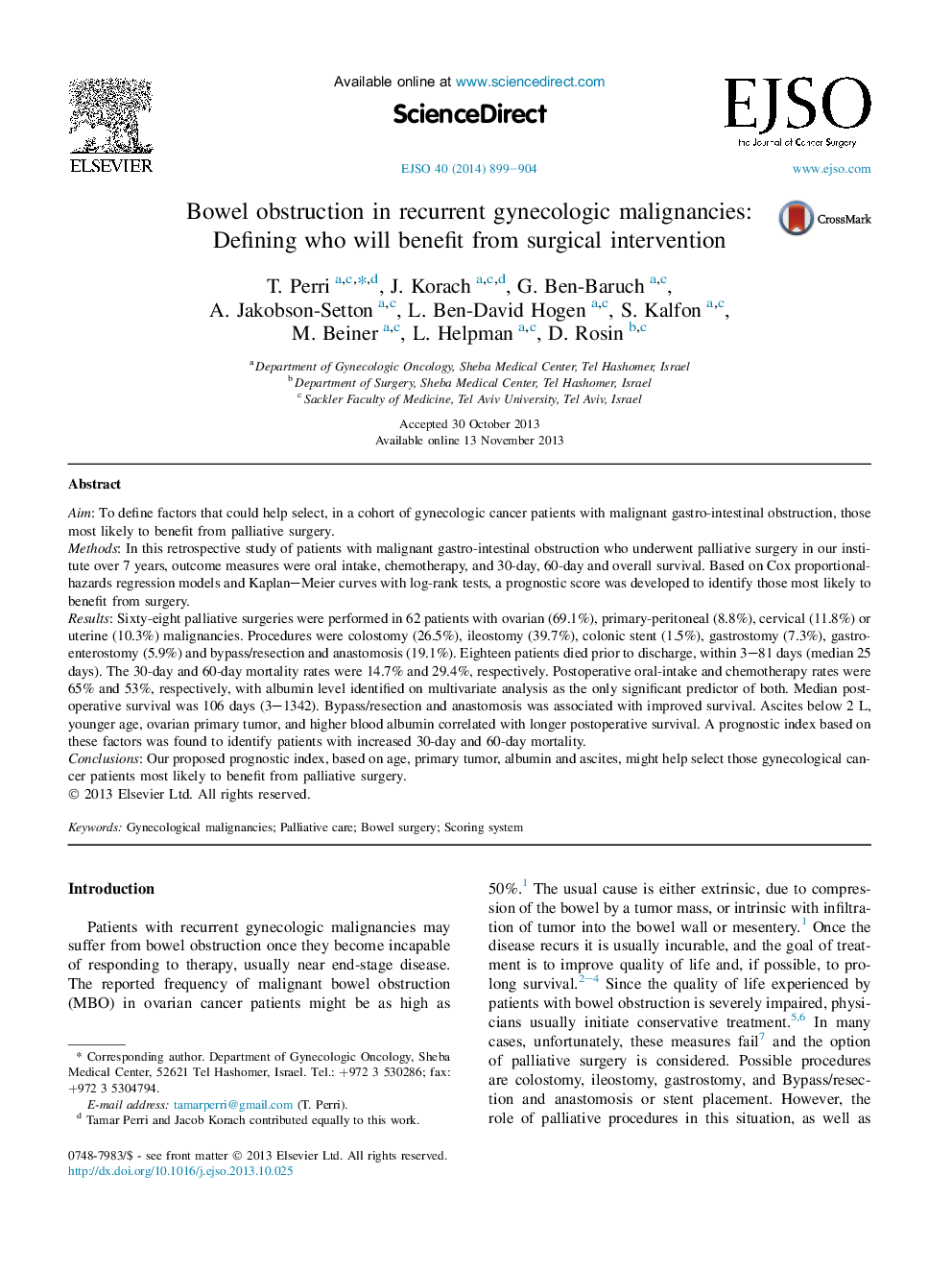| کد مقاله | کد نشریه | سال انتشار | مقاله انگلیسی | نسخه تمام متن |
|---|---|---|---|---|
| 3985243 | 1601386 | 2014 | 6 صفحه PDF | دانلود رایگان |
AimTo define factors that could help select, in a cohort of gynecologic cancer patients with malignant gastro-intestinal obstruction, those most likely to benefit from palliative surgery.MethodsIn this retrospective study of patients with malignant gastro-intestinal obstruction who underwent palliative surgery in our institute over 7 years, outcome measures were oral intake, chemotherapy, and 30-day, 60-day and overall survival. Based on Cox proportional-hazards regression models and Kaplan–Meier curves with log-rank tests, a prognostic score was developed to identify those most likely to benefit from surgery.ResultsSixty-eight palliative surgeries were performed in 62 patients with ovarian (69.1%), primary-peritoneal (8.8%), cervical (11.8%) or uterine (10.3%) malignancies. Procedures were colostomy (26.5%), ileostomy (39.7%), colonic stent (1.5%), gastrostomy (7.3%), gastroenterostomy (5.9%) and bypass/resection and anastomosis (19.1%). Eighteen patients died prior to discharge, within 3–81 days (median 25 days). The 30-day and 60-day mortality rates were 14.7% and 29.4%, respectively. Postoperative oral-intake and chemotherapy rates were 65% and 53%, respectively, with albumin level identified on multivariate analysis as the only significant predictor of both. Median postoperative survival was 106 days (3–1342). Bypass/resection and anastomosis was associated with improved survival. Ascites below 2 L, younger age, ovarian primary tumor, and higher blood albumin correlated with longer postoperative survival. A prognostic index based on these factors was found to identify patients with increased 30-day and 60-day mortality.ConclusionsOur proposed prognostic index, based on age, primary tumor, albumin and ascites, might help select those gynecological cancer patients most likely to benefit from palliative surgery.
Journal: European Journal of Surgical Oncology (EJSO) - Volume 40, Issue 7, July 2014, Pages 899–904
